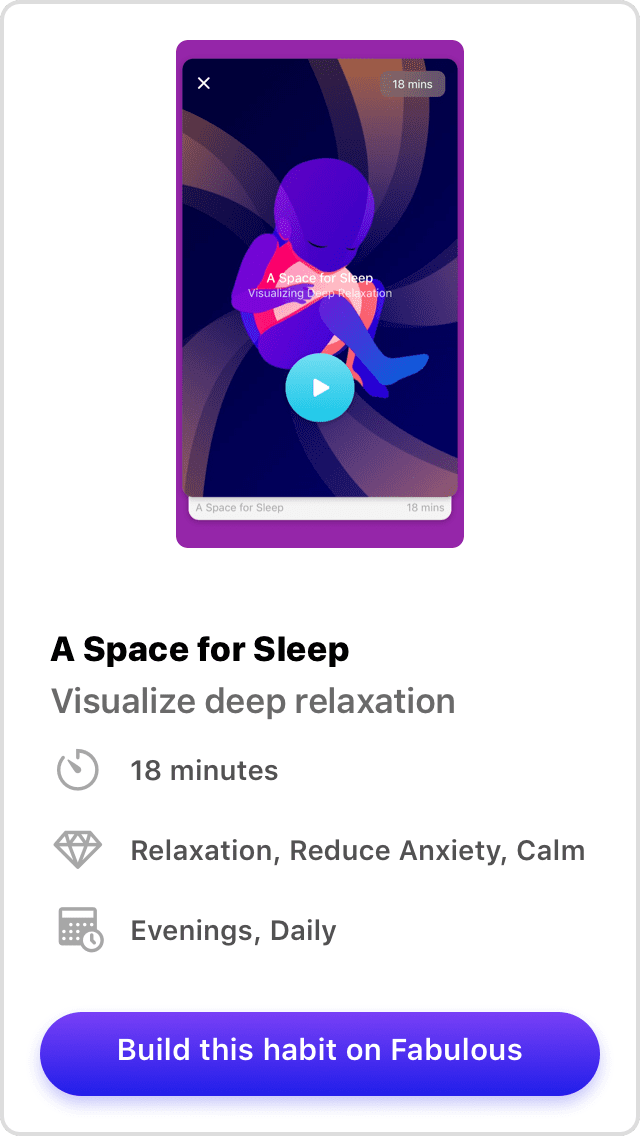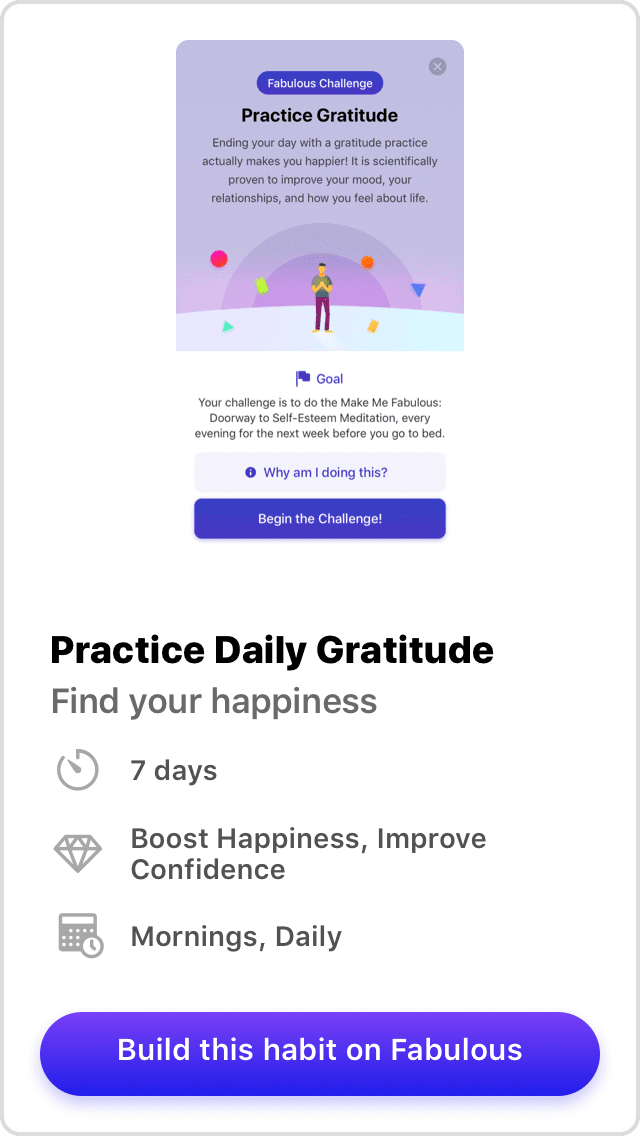Want to wake up each day with a clear mind and a sense of calm serenity? You’ve come to the right place. In this guide, we’ll show you exactly how to achieve that most elusive of life goals-inner peace.
If you are imagining that you’ll need to start stocking up on patchouli and growing your hair out to truly access lasting tranquility, fear not. You won’t need to relocate to a cave in the wilderness. Inner peace is accessible for all. You can still live in the modern world, you can still be ambitious, you can even keep your smartphone. Developing true resiliency to the normal stresses and strains we all face, and fostering a quiet place to just “be” is within your reach. We’ll show you how.

Develop Mindfulness
Mindfulness means that you are totally aware and switched on to your current state of being.
When you are truly mindful you are not dwelling on the past or obsessing about the future, you are in the moment, right now. Developing a sense of mindfulness takes practice. Go-getters and efficient people especially can feel that they are “wasting time” by trying to cultivate a sense of peaceful calm. But being mindful can actually make you more productive. A study in the Frontiers of Psychology journal found that “team climate, organizational climate, and personal performance” were improved in workplace settings when a mindfulness intervention was initiated.
Mindfulness strategies don’t have to include hours spent meditating, it can be as simple as taking time to conduct a quick personal inventory of how you are feeling right now in this moment. Start small by setting aside just a few moments a day either first thing when you wake up or right before bed to just sit and practice being in the moment. Listen to your breathing, assess your thoughts and try to empty your mind.
Get to Know Yourself
To find inner peace you need to become more acquainted with the most important person in your life, yourself. Examine both your strengths and weaknesses, identify scenarios or situations that will cause you stress and try to preplan your responses.
“An intimate relationship with the self is the most effective way to help someone feel more competent to ride the waves of their emotions and create inner calm,” says Javanne Golob, a licensed Clinical Social Worker, yoga instructor, and meditation teacher based in Venice, CA.
Understanding your reactions to stress and anxiety can help you to self-soothe when you are upset, frustrated or feeling unhappy. Knowing yourself intimately can also help you to avoid situations that can threaten your developing sense of inner peace and avoid certain people or obligations that add to your anxiety.
Quieten Your Inner Critic
Many of us are harder on ourselves than anyone else in our lives. When you hear that critical inner voice, tell it to be quiet. Challenge it with contradictory evidence that you can achieve your goals, that you are successful in your endeavors, and that you do matter. If the voice is incessant try to talk to a trusted friend or therapist to get some more accurate feedback on your journey.
Set Boundaries
When we are overworked and overscheduled there simply isn’t enough time to invest in self-reflection. By saying “no” to commitments that fail to fill us with happiness, we can be set free to focus on what actually matters. Let go of the expectations of what you should and shouldn’t do and banish guilt at the same time. Try marking appointments in your schedule that are non-negotiable periods of mental seclusion. Protect these sessions fiercely, without them you cannot perform any other obligations at an optimum level.
Be Creative
Inner peace differs for us all. Some will need to sit in quiet contemplation to feel a deep sense of tranquility and mental stillness. For others, those same benefits are felt in active pursuits like adrenaline pumping extreme sports or spending time in nature. It isn’t really important what activity you are doing, it only matters that you are giving yourself space and time to critically reflect on your wellbeing and happiness. Your meditative practice will also change over time, as your circumstances and priorities shift. A driven CEO may well have a very different approach to developing a calm mind than a busy mom, a retired person, or a student balancing work and study.
“There is no perfect recipe for peace. Inner calm is not linear – it moves and shifts over time. You are an organic, constantly changing being, so what you need to feel peaceful will shift and change over time as well. As we each love differently, we all find peace in unique ways,” Golob says.
Prioritize Yourself
You cannot hope to achieve inner peace without investing in the process and that means prioritizing yourself and your needs. You may have a challenging and demanding career, perhaps children or elderly parents to care for, or simply the usual heavy load of personal and professional obligations weighing you down. Despite your other commitments, you must come first. Prioritizing yourself means taking care of your very basic and essential health needs like making sure you eat well, exercise, and get enough quality sleep. This is your personal wellness baseline. You cannot operate at full capacity until these needs are met.
Develop Calming Habits
Creating moments in your day for calm reflection can be as simple as enjoying a cup of tea or relaxing in a hot bath. Build small wellness habits into your day that encourage you to think about how you are feeling in that very moment. You may choose to use a natural stress relief product like Rescue Remedy drops, lozenges, and creams or set an alarm to get up and walk around for every 20 minutes of work.
Any small daily habits that help you to focus on yourself can encourage equanimity. As Heather Stang, founder of the Frederick Mediation Center, explains, “It doesn’t take hours a day to find inner peace. Just a few moments of mindful practice sprinkled throughout the day can have a profound impact. Simple activities such as savoring your food, gazing at the sunset, moon, and stars, or appreciating the smile on someone else’s face are little things you can do to boost your mood.”
Accept Limitations to Foster Resiliency
Being able to bounce back from setbacks is easier if you first accept that the world will not always be as you hope it to be. People from time to time will let you down. Events may seem to conspire against you, and sometimes without any discernible reason why, everything can just go wrong.
Rev. Sheri Heller, LCSW is an NYC psychotherapist and interfaith minister in private practice specializing in the treatment of complex trauma and addictive disorders. She says that it is essential to accept what life throws at us in order to achieve inner peace.
“From a place of acceptance, resistance and longing is mitigated and I am able to make room for what there is to be grateful for. Being couched in acceptance also allows me to reflect on where I can humbly make changes and what I need to let go of in order to keep growing,” she says.
Be Patient
Seeking inner peace and contentment is a lifelong pursuit. There are no real shortcuts, it takes time, perseverance and a commitment to yourself. Some days will be easier than others but by putting in the work you are adding to your reserve of inner strength in times of trouble.
Golob suggests we think of our emotions as waves, they can topple us and drag us beneath the surface but with practice, we can learn to ride the waves and grow from the experience.
“Peace cannot be a constant. Trying desperately to hold onto peace can be detrimental. Just like sadness and anger, peace will come and peace will go,” she says.
Seek the Divine
When we begin to tap into that peaceful reserve of quiet strength and deep contentment, we often open ourselves up to experience the transcendent.
For some people this might be a religious or spiritual experience, for others, it can be deeply emotional-tapping into long-held fears and releasing old hurts. Others may find awe and wonder when exploring the natural world or connecting with a beloved pet. When we take time out of to-do lists and daily commitments we make space for appreciating the divine.
“Daily meditation, prayer, visualization and journaling practice [created a] deepening of my faith in The Divine presence in all aspects of life. I found not only the deepest peace possible, but also the knowledge that everything that happens in our lives, even the most painful situations, has a higher meaning, and are opportunities for growth and transcendence,” says Roselyn G. Smith, PhD a licensed Psychologist and Hypnotherapist.
Achieving inner peace can sound like a lofty goal. It’s true that many people spend their whole lives trying to obtain a sense of self-acceptance and inner quiet. Peace may not come to you easily, or remain a constant in your life but striving for it, especially through simple daily practice offers its own reward. Give yourself this gift, of time and reflection and peace may follow.
Our Gateway to Presence Meditation is a perfect place to start. It will help you reduce your mental clutter and physical stress so you can deeply connect to yourself in the present moment.





